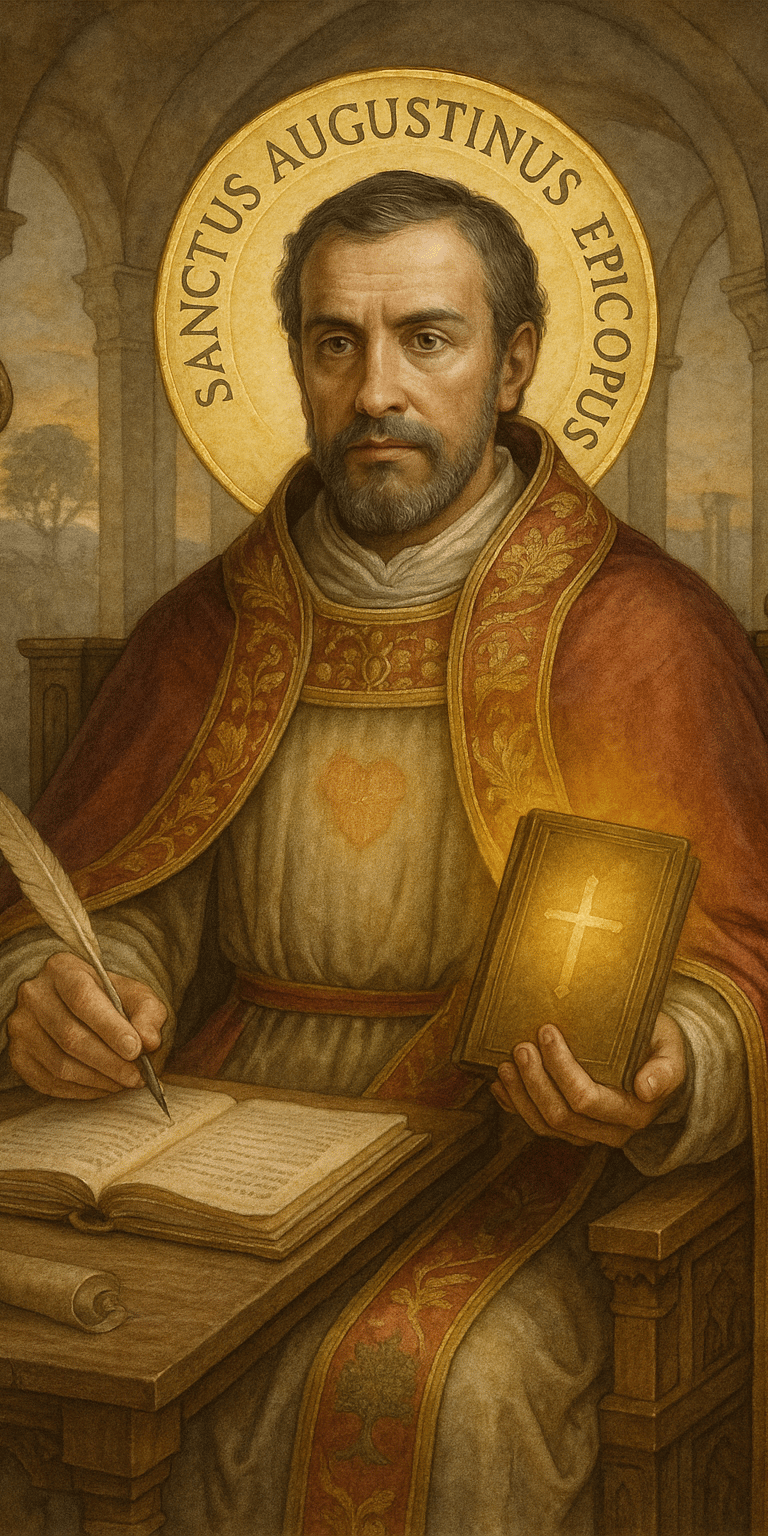Saint Augustine: A Doctor of the Church in an Age of Upheaval
Feast Day: August 28 | Patron of theologians, printers, and seekers of conversion
Halo & Light Studios
8/28/20252 min read


Click Link for a reel of Daily Dose of Saints and Faithful Art:
https://youtube.com/shorts/uutzomognCA?feature=share
Fellow Pilgrims in Christ,
When we remember Saint Augustine of Hippo (354–430), we see not only the brilliant theologian and bishop but also a man who lived through one of the most turbulent centuries in world history. His life tells the story of a restless soul transformed by grace at a time when the Roman world and the young Church were both struggling to define their future.
Augustine was born in Roman North Africa, in Tagaste (modern Algeria), during the waning days of the Western Roman Empire. Political instability, economic decline, and barbarian invasions marked the age. By the time Augustine was a bishop, the Visigoths had sacked Rome, shaking the very foundations of the ancient world.
The Church itself was still fragile and often divided. Doctrinal controversies such as Arianism—denying the full divinity of Christ—and the Donatist schism in Augustine’s own homeland threatened unity. The question of grace and free will also caused fierce debate, especially as Pelagius argued that human beings could save themselves by their own efforts. The Church needed clear voices to guide it through confusion, and Augustine would become one of its greatest defenders.
From his youth, Augustine’s heart was pulled in many directions. Gifted with intelligence and a love for rhetoric, he pursued worldly success in Carthage and Milan. Like so many of his peers, he experimented with philosophies and alternative religions, even joining the Manicheans in his search for answers. Yet none of these satisfied him. He lived as a man of divided desires—ambitious, passionate, and yet painfully aware of his own weakness.
It was through the prayers of his mother, Saint Monica, and the preaching of Saint Ambrose in Milan, that Augustine finally surrendered. Baptized at Easter in 387, he discovered that true wisdom lay not in philosophy or worldly achievement, but in the grace of Jesus Christ. His famous words, “Our hearts are restless until they rest in You,” sum up not only his own journey but the human condition itself.
Returning to North Africa, Augustine was soon ordained and became bishop of Hippo. His ministry spanned decades of teaching, preaching, and writing—always in service of a Church beset by division. He opposed the Donatists, reminding the faithful that the holiness of the Church rests not on the perfection of its ministers but on Christ Himself. He battled Pelagianism, insisting that salvation is pure gift, not human achievement.
As the empire crumbled around him, Augustine wrote The City of God. In it, he distinguished the earthly city—subject to sin, pride, and collapse—from the City of God, the eternal communion of the faithful. To a society shaken by Rome’s fall, he offered a vision of hope: kingdoms rise and fall, but the Kingdom of God endures forever.
Augustine’s Confessions—a deeply personal prayer recounting his conversion—remains one of the most influential works in Christian spirituality. His reflections on sin, grace, and the love of God speak as urgently today as they did sixteen centuries ago.
He died in 430, as the Vandals laid siege to Hippo. Yet his legacy has never died. The restless young seeker became a pillar of the Church, showing the world that even in an age of upheaval, truth and grace prevail.
